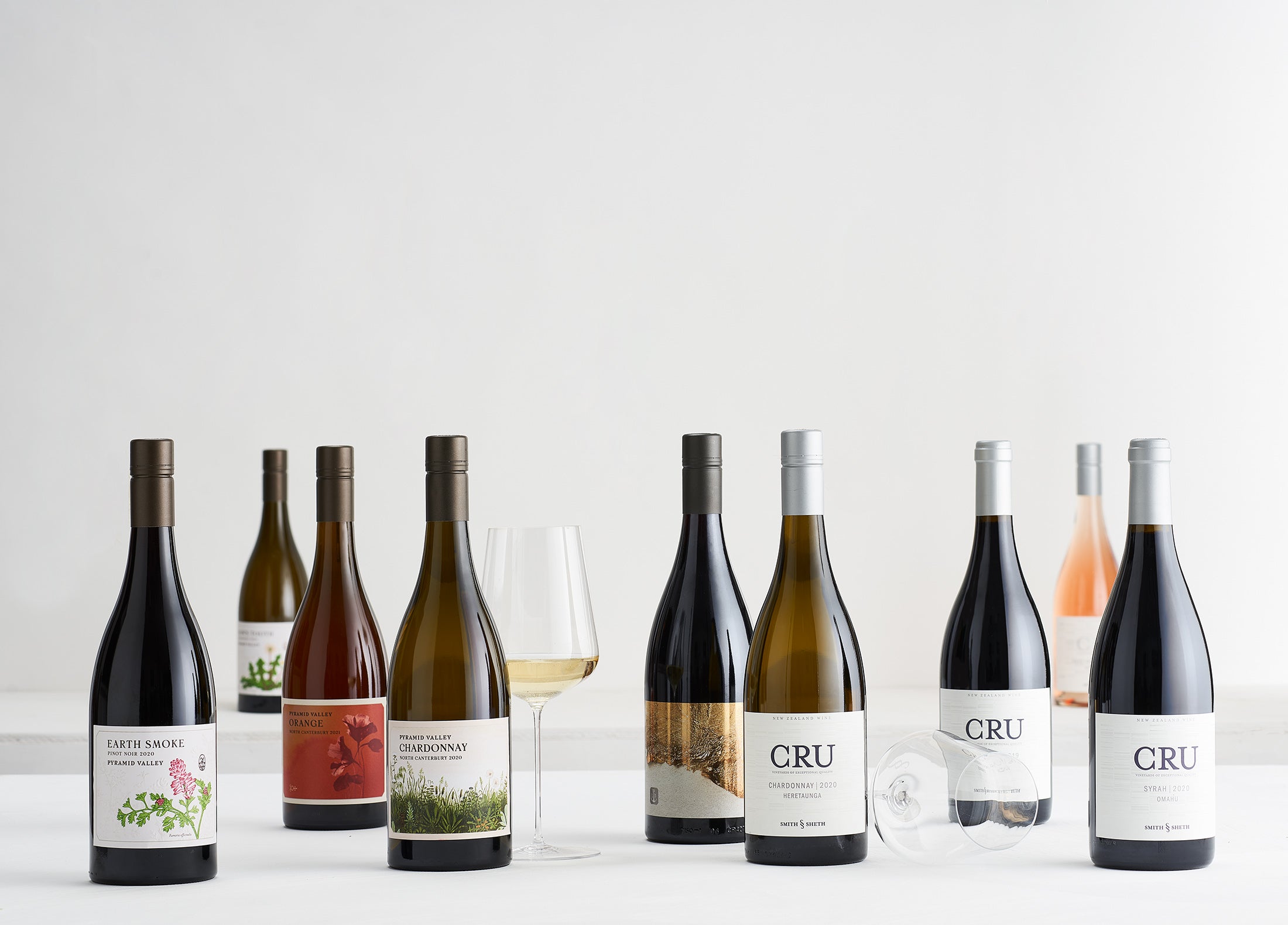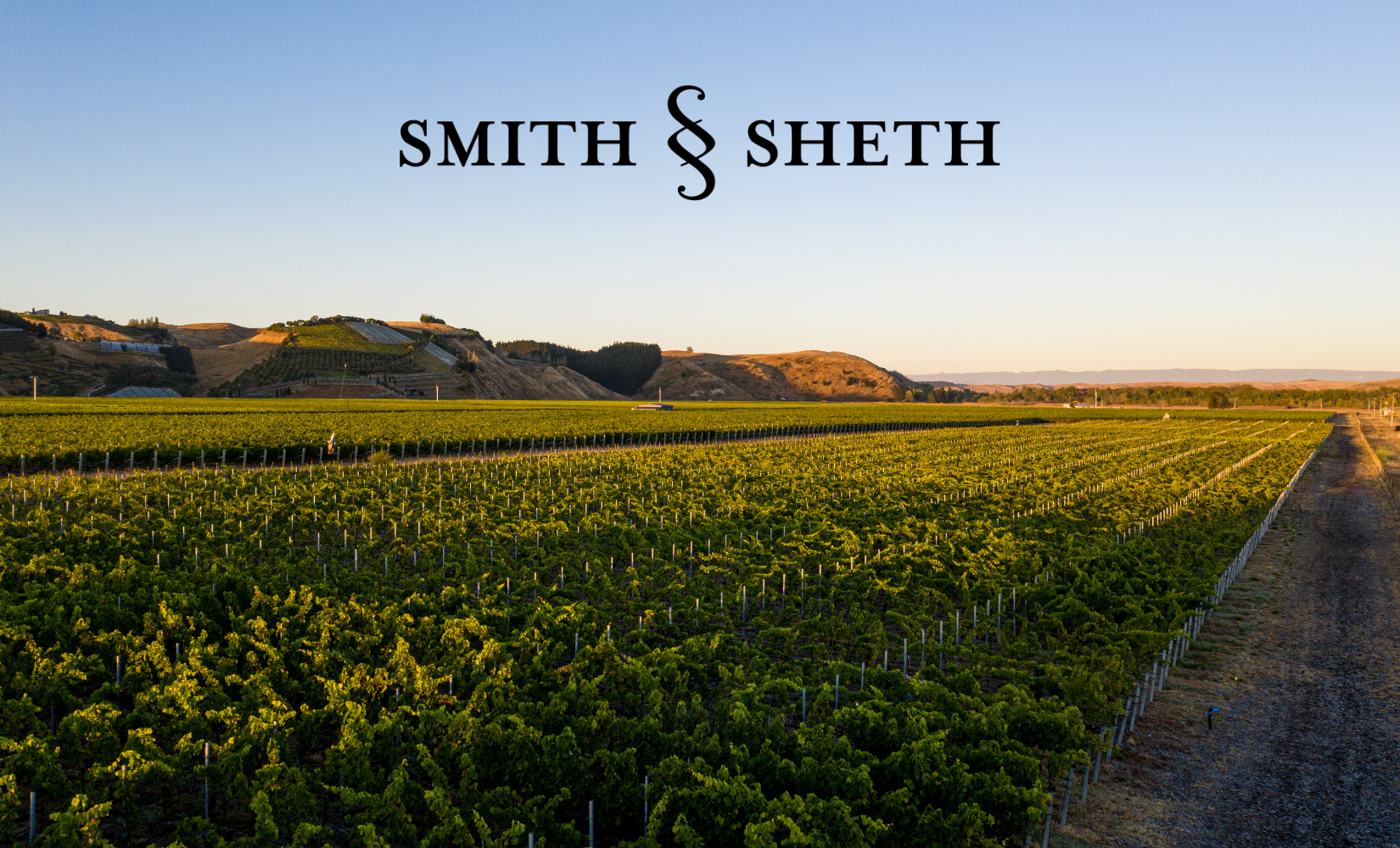
Aotearoa New Zealand Fine Wine Estates
New Zealand's most exceptional vineyards.
Each with a unique story to tell, linked by the overarching philosophy of pleasure, culture and craft and a dream of our founders Brian Sheth and Steve Smith MW to craft
impeccable wines and inspiring experiences they could share with fine wine
lovers around the world.
Aotearoa New Zealand Fine Wine Estates is the realisation of that dream through three premium wine companies: Smith & Sheth, Pyramid Valley and Lowburn Ferry. Producing wine from four of New Zealand’s main winegrowing regions, Marlborough, Hawke’s Bay, Central Otago and North Canterbury, these wineries all have an ambition of making some of the world’s greatest cool climate Chardonnay, Pinot Noir and Sauvignon Blanc.
We look forward to sharing the pleasure, culture and craft of our fine wines with you.
-

Smith & Sheth
VISIT SMITH & SHETHVineyards of exceptional quality.
Parcels of wine hand selected from exceptional vineyards throughout New Zealand are carefully nurtured, blended and bottled for you by Steve Smith MW and Brian Sheth. They are true expressions of their place and people. -

Pyramid Valley
VISIT PYRAMID VALLEYWines that breathe of their place.
The wines of Pyramid Valley are born in the dramatic limestone and clay derived soils and slopes of our Waikari and Pyramid Valley Mānatu farms, home to some of the most profound Pinot Noir and Chardonnay wines in the world. -

Lowburn Ferry
VISIT LOWBURN FERRY150 years in the making.
Deep in New Zealand’s South Island and surrounded by mountain ranges, river valleys and hillsides is Central Otago, a region whose extreme climate rewards careful site selection with wines of great intensity and finesse.



